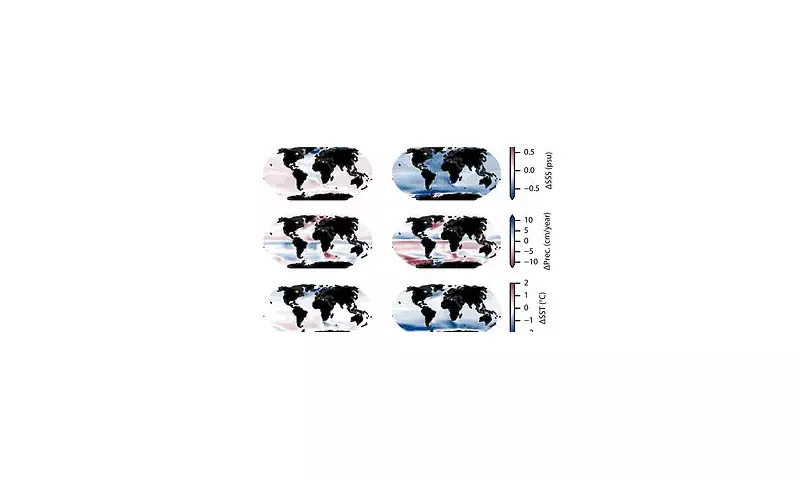
A groundbreaking new study has revealed a remarkable climate paradox: the melting of the West Antarctic Ice Sheet could potentially save the Gulf Stream from collapse.
The Unlikely Saviour
Researchers from Utrecht University discovered that the vast icy mass in the southern hemisphere, containing approximately 750,000 cubic miles of ice, could play an unexpected role in stabilising Atlantic ocean currents. This immense volume of ice would be enough to fill Wembley Stadium nearly three billion times.
As the West Antarctic Ice Sheet melts, it sends salty water towards the North Atlantic, which helps maintain the water density necessary to keep the crucial Atlantic Meridional Overturning Circulation (AMOC) moving. The AMOC acts as the ocean's conveyor belt, transporting warm water northwards and helping to maintain Europe's relatively mild climate.
A Devastating Trade-Off
However, scientists stress this potential benefit comes with catastrophic consequences. Study author Dr Sacha Sinet, climate scientist at Utrecht University, told the Daily Mail that choosing between scenarios is 'hard to tell'.
If the West Antarctic Ice Sheet were to melt completely, it would cause sea levels to rise by up to 14 feet (4.3 metres), resulting in widespread flooding, fatalities and massive infrastructure damage across coastal communities worldwide.
The findings suggest humanity may face an impossible choice: preserve the Gulf Stream to prevent Europe from entering a deep freeze, or save the West Antarctic Ice Sheet to avoid catastrophic global flooding.
Computer Model Revelations
The research team used a sophisticated computer model called CLIMBER-X to simulate how the AMOC would respond to different rates and timing of ice sheet collapse under continuing global warming.
Remarkably, the model showed that under specific conditions - particularly when West Antarctic melting occurs rapidly and begins to slow as Greenland's melt peaks - it could prevent total AMOC collapse. This happens because Antarctic meltwater alters water layer behaviour in the Southern Ocean, eventually sending saltier water toward the North Atlantic.
Dr Sinet explained: 'Greenland melt generally destabilises the AMOC, whereas, as we have shown, West Antarctic Ice Sheet's melt may, under certain conditions, stabilise it.'
However, the timing proves crucial. If West Antarctic melting peaks too late or occurs too slowly, this stabilising effect disappears and could even accelerate the AMOC's tipping point.
The Ultimate Solution
Scientists emphasise that reducing greenhouse gas emissions remains the only way to save both the Gulf Stream and the ice sheet, avoiding both catastrophic scenarios.
Dr Sinet stressed that if emissions remain too high to preserve key climate systems, understanding whether the AMOC collapses becomes essential for anticipating impacts that societies must prepare for.
The distinction between ice sheets is significant: while Greenland's destabilising effect on AMOC is well-established, the influence of West Antarctic melt remains poorly understood and will likely continue to be debated.
There are two ice sheets on Earth: the Greenland Ice Sheet in the Northern Hemisphere and the Antarctic Ice Sheet in the Southern Hemisphere, with the latter divided into east and west segments. The West Antarctic Ice Sheet is more vulnerable to climate change as it largely rests on the sea bed, making it particularly susceptible to warming ocean waters.





